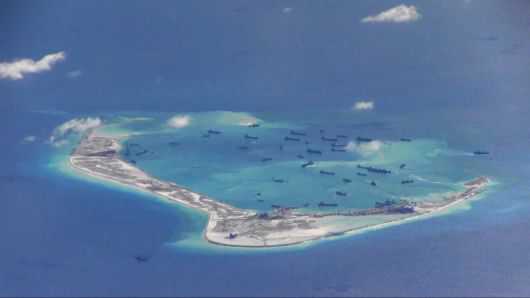As China exchanges retaliatory tariffs with the US, it may play 'tit-for-tat game at sea' with Tokyo
09 July, 2018

The world's second-largest economy may retaliate following Tokyo's decision to send a helicopter carrier to the South China Sea, potentially triggering a "tit-for-tat game at sea," Chinese state media has warned.
The Japanese vessel will patrol the disputed waterway and the Indian Ocean for two months beginning in September as part of Japan's efforts to promote a free and open Indo-Pacific, Reuters reported on Wednesday, citing officials.
That triggered a stinging rebuke from Chinese newspaper The Global Times the following day.
"Japan’s provocation is sure to negatively impact China-Japan relations," according to an English translation of a Global Times editorial by the official news website of China's military. "There will be the possibility that China may take some kind of countermeasures ... Tokyo knows perfectly well that China has the ability and means of retaliation, and it would not end well if the two countries launched a 'tit-for-tat' game at sea."
Last year, Prime Minister Shinzo Abe's government sent a separate ship on a similiar tour. But any foreign presence in the South China Sea is irksome to Beijing, which claims a massive section of the resource-rich area that extends roughly 1,000 miles from its southern shores. Despite competing claims from several Southeast Asian nations, China continues to construct artificial islands, even installing missile systems on some outposts.
"Japanese warships entering the South China Sea would be considered a political and diplomatic provocation to China no matter what excuse it used," the editorial continued. Abe's administration "is fully aware that China is opposed to such action, but that’s how Japan deals with its relation with China," it added.
Speculating on Tokyo's reasoning, the editorial questioned whether the patrol is "a symbolic step for Tokyo to state its loyalty to Washington" given the United States' inclination for freedom of navigation operations.
Alternatively, Tokyo may be proactively seeking to contain Beijing or looking to expand its military strength, the editorial stated. Regardless, "the South China Sea isn’t the proper place for [Japan] to game with China," it warned.
